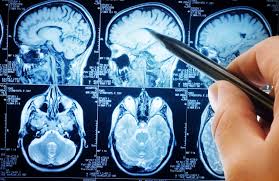
MRI in Disease Diagnosis: A Lifesaving Tool—But One Mistake Could Be Fatal
Magnetic Resonance Imaging (MRI) is a modern and reliable technology used for diagnosing various medical conditions. This non-invasive imaging technique provides clear and detailed visuals of the body’s internal organs, playing a crucial role in detecting complex diseases.
Doctors recommend MRI scans for a wide range of medical conditions, including:
- Brain tumors, stroke, and other neurological disorders
- Spinal cord injuries or chronic back pain
- Joint and bone issues in the knees, shoulders, wrists, and ankles
- Heart and vascular conditions
- Complications in the eyes, ears, nose, and throat
- Disorders related to the prostate, breasts, and female reproductive organs
- Liver, kidney, gallbladder, and gastrointestinal problems
- Cancer detection and staging
During the procedure, the patient lies on a table that slides into the MRI machine. The specific area of the body is scanned while the patient must remain perfectly still. Even minor movements can blur the images and lead to inaccurate results. If a patient is anxious or unable to remain still, a mild sedative may be administered—this is safe and temporary.

MRI scans typically take 10 to 40 minutes, depending on the complexity of the case. In some situations, it may take up to an hour. A trained MRI technologist monitors the patient throughout the process and can communicate with them if needed.
MRI is completely painless and involves no harmful radiation, unlike X-rays or CT scans. It is considered one of the safest imaging methods available. Even when contrast dye is used to enhance image quality, side effects are rare.
Before undergoing an MRI, patients must remove all metallic items such as watches, glasses, keys, jewelry, mobile phones, and ATM cards.
If the patient has any metallic implants inside their body—such as artificial heart valves, dental implants, or bone rods—they must inform the medical team beforehand. Failure to do so can result in serious complications due to the strong magnetic fields used in MRI machines.
While MRI is generally safe for most people, it should be avoided in certain cases:
- During the first trimester of pregnancy, unless absolutely necessary
- Within 8 weeks of surgery involving the eyes, ears, nose, throat, heart, brain, or blood vessels—unless approved by a physician or radiologist
MRI is an exceptionally effective diagnostic tool, but even a minor oversight can lead to dangerous consequences. That’s why strict adherence to medical advice and safety guidelines is essential before undergoing an MRI scan.
